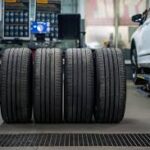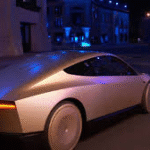A Big Question for Range Rover Owners
If you’re a proud owner of a Range Rover—or thinking about becoming one—you’ve probably asked yourself: how long is this engine going to last? With a vehicle this luxurious and capable, engine life isn’t just about reliability. It’s about making sure your investment holds up over time. Whether you’re driving the latest model or trying to breathe new life into an older one, engine lifespan is something that matters. The truth is, some Range Rover engines go strong past 200,000 miles. Others, sadly, don’t make it that far. The difference often comes down to maintenance, engine type, and how the vehicle is driven. We’ll walk through what you can expect from a Land Rover engine, the role of reconditioned engines, and how to get the most mileage—literally and figuratively—out of your Range Rover.
How Many Miles Can a Range Rover Engine Last?
On paper, most Range Rover engines are built to last around 150,000 to 200,000 miles—and in the right hands, they absolutely can. But this isn’t a guarantee. Some owners see major issues as early as 80,000 miles, while others cruise past 250,000 with minimal problems. It depends on the specific engine (for example, the older TDV8 diesels are known to be tanks), but even more so on how well it’s taken care of. If you stick to your service schedule and use quality parts, there’s no reason your engine shouldn’t last well over a decade. Of course, if you’re inheriting an older model with engine trouble, a reconditioned engine might be the way to keep it going without spending a fortune.
What Affects How Long a Land Rover Engine Will Last?
It’s not just about how many miles you put on the odometer—it’s how you drive those miles that makes a big difference. City driving with constant stops and starts wears engines out faster than highway cruising. Regular towing, off-roading, or high-speed driving puts more stress on the engine, too. Then there’s the big one: maintenance. Miss a few oil changes or let coolant leaks go unchecked, and you’re asking for trouble. Even something as small as ignoring a “check engine” light can shorten your engine’s life. If your Range Rover’s engine is already tired, replacing it with a professionally rebuilt, reconditioned engine can give you a second shot, especially if you’re planning to keep the vehicle for the long haul.
Diesel vs. Petrol: Which Range Rover Engines Last Longer?
If you’re wondering whether petrol or diesel engines last longer in a Range Rover, here’s the deal: diesels usually win when it comes to pure longevity. Engines like the 3.0L TDV6 or 4.4L SDV8 are known for crossing the 200,000-mile mark with grace, thanks to their heavy-duty construction and lower operating RPMs. Petrol engines, especially the supercharged 5.0L V8, offer more power but can develop issues earlier—timing chain problems, for instance, are not uncommon. Newer Ingenium petrol engines are showing promise, but they’re still too young to call long-term champions. Bottom line? If you’re aiming for longevity, a diesel Range Rover might be the safer bet. But with proper care, either engine type can give you a solid run.
Why Reconditioned Engines Make Sense for Older Range Rovers
When your Range Rover engine starts showing signs of serious trouble, replacing it with a brand-new one from the factory can cost more than the SUV is worth. That’s where reconditioned engines come in. These engines are rebuilt from the ground up—cleaned, machined, and reassembled with new or restored parts. Done right, they’re as good as new, and often come with solid warranties. They’re also a great way to reduce waste and keep older vehicles on the road. Just be careful—quality varies. Make sure you’re working with a reputable supplier, and don’t be afraid to ask what parts were replaced. A well-rebuilt engine should last another 100,000 miles or more if you treat it right.
The Most Common Engine Problems in Range Rovers (and When They Happen)
No engine is perfect, and Range Rovers have a few issues that pop up more than others. If you own a 5.0L V8, you might already know about timing chain tensioner failures—they can be an expensive fix if caught late. Diesel engines, on the other hand, sometimes suffer from turbo failures or EGR valve problems, especially in short-trip driving conditions. Overheating is another common issue, often caused by failing water pumps or aging coolant hoses. If you notice strange noises, smoke, or sudden drops in performance, don’t wait. Fixing small problems early can save your engine—or push you to consider a reconditioned engine before things go from bad to worse.
How Regular Maintenance Keeps Your Engine Alive Longer
This might sound obvious, but it’s worth repeating: maintenance is everything. Stick to oil changes (preferably synthetic), keep the cooling system in top shape, and replace worn belts and filters on schedule. Even cleaning your intake system once a year can make a difference in engine efficiency. For diesel engines, regular DPF and EGR system checks are essential. It’s also smart to let your engine warm up before heavy driving, and let it cool a bit after long drives, especially turbocharged models. Skipping services may save money in the short term, but it almost always leads to bigger, more expensive problems later. If you’ve just installed a reconditioned engine, following a strict maintenance routine is even more critical to protect your investment.
What Real Owners and Mechanics Say About Engine Lifespan
Talk to a few Range Rover owners or visit a local Land Rover mechanic, and you’ll hear a wide range of experiences. Some swear by their vehicles, claiming over 200,000 miles with no major repairs. Others hit serious engine issues before they even hit 100,000 miles. The difference usually comes down to maintenance history and driving habits. Independent mechanics often suggest avoiding neglected vehicles, especially those with vague service records. For owners who’ve made the switch to reconditioned engines, the response is often positive, provided the rebuild was done right. The key takeaway? A Range Rover engine can last a long time, but only if it’s cared for like the high-performance machine it is.
Should You Repair, Rebuild, or Recondition Your Engine?
If your engine is acting up, you’ve got a few choices—and each comes with pros and cons. A repair might seem cheapest, but patching one problem won’t stop the next one from showing up. Rebuilding can be an option if the damage is limited and your mechanic is top-tier. But for many people, a reconditioned engine offers the best mix of value, reliability, and peace of mind. It’s a full reset, and often comes at half the cost of a brand-new engine. Just be sure to work with experienced professionals and get a written warranty. That way, you can drive with confidence knowing your Range Rover is ready for many more miles ahead.
Making Your Range Rover’s Engine Last
At the end of the day, the engine in your Range Rover is only as good as the care you give it. Most are capable of lasting 150,000 to 200,000 miles or more, but only if you stay on top of maintenance and catch problems early. If you’re facing engine failure, don’t panic—a reconditioned engine might just be your ticket to keeping your Range Rover on the road without breaking the bank. Whatever route you take, remember that these engines aren’t just machines—they’re the heart of your vehicle. Treat them well, and they’ll go the distance.
- What Is the Average Lifespan of a Typical Range Rover Engine Today?
- Discover how long a typical Range Rover engine lasts, what factors affect its lifespan, and when a reconditioned Land Rover engine might be the smart choice for long-term reliability.
- Land Rover Engine, Land Rover Discovery 3 For Sale, Reconditioned Engines, Range Rover Engine, Engine4X4, Engine Specialist, 4x4, Specialist4x4, 4x4engine, Land Rover 4x4, Range Rover,
Related posts:
 Finding the Right MOT Centre Near Me: Why NH Service Center Ltd Is Milton Keynes’ Trusted Choice
Finding the Right MOT Centre Near Me: Why NH Service Center Ltd Is Milton Keynes’ Trusted Choice
 Why More UK Drivers Are Switching to Japanese Used Cars with Nobuko Japan
Why More UK Drivers Are Switching to Japanese Used Cars with Nobuko Japan
 Electric Skateboards: Revolutionizing Urban Travel and Commuting
Electric Skateboards: Revolutionizing Urban Travel and Commuting
 Importance of Employee Training and Certification in Service Quality Assurance
Importance of Employee Training and Certification in Service Quality Assurance
 From Basic Service to Complex Repairs: One Trusted Garage for Your German Car in Abu Dhabi
From Basic Service to Complex Repairs: One Trusted Garage for Your German Car in Abu Dhabi
 Unlock Your Potential with Unichrone’s Attention Management Certification
Unlock Your Potential with Unichrone’s Attention Management Certification
 American Muscle: Ford Mustang vs. Chevrolet Camaro vs. Dodge Challenger
American Muscle: Ford Mustang vs. Chevrolet Camaro vs. Dodge Challenger
 Autonomous Ride-Hailing is Here: What to Know About the Robotaxi Market
Autonomous Ride-Hailing is Here: What to Know About the Robotaxi Market






